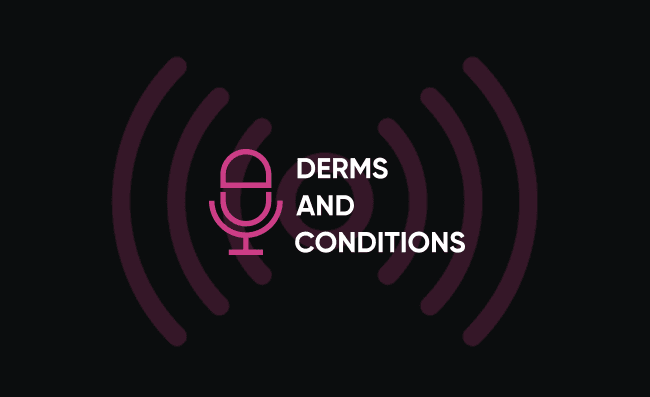Derms and Conditions Podcast Episode 88:
Raising the Bar in Atopic Dermatitis: Where Are We Now?
Featuring Mark Lebwohl, MD | Release Date: September 05, 2024
In this episode of Derms and Conditions, host James Del Rosso, DO, speaks with Mark Lebwohl, MD, Dean for Clinical Therapeutics at the Icahn School of Medicine at Mount Sinai, about the role of Janus kinase (JAK) inhibitors, particularly upadacitinib, in treating atopic dermatitis. They provide insights into the benefits of JAK inhibitors compared to monoclonal antibodies, patient selection, and the implications of recent clinical data.
They begin by explaining that while monoclonal antibodies like dupilumab and tralokinumab have been effective for many patients, JAK inhibitors can offer a powerful alternative for those seeking better control of their symptoms. They emphasize the importance of regularly assessing patient satisfaction with their treatment and exploring whether a switch to a JAK inhibitor might be beneficial.
Dr Lebwohl then refers to treat-to-target principles recently established by a consensus conference, where EASI 75 is a moderate goal and EASI 90 is optimal. JAK inhibitors, he suggests, are more likely to help patients reach these higher targets, especially when symptoms persist despite achieving EASI 75.
They continue to discuss data demonstrating that upadacitinib significantly improves outcomes, with 40.8% of patients achieving EASI 90 compared to 22.5% with dupilumab. Additionally, upadacitinib-treated patients are more likely to report minimal impact on their quality of life as measured by the Dermatology Life Quality Index.
Finally, Dr Lebwohl stresses the importance of discussing the risks associated with JAK inhibitors, including boxed warnings, in a clear and contextualized manner to help patients make informed decisions.
Tune in to the full episode to gain a deeper understanding of the nuances of JAK inhibitors in AD treatment, including practical tips for patient management, insights into the latest clinical data, and optimizing patient care.

